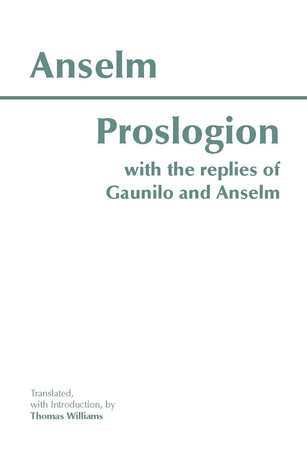What do you think?
Rate this book


64 pages, Paperback
First published January 1, 1077
Quick now, little man, flee a short while your occupations; hide yourself a short time from your tumultuous thoughts. Cast off your burdensome cares now, and put off until later your laborious distresses. Empty a little bit for God, and rest a little bit in him. Enter into the chamber of your mind, close off all things besides God and what may help you in seeking him, and with door closed seek him. Speak now, my whole heart, speak now to God: I seek your countenance; your countenance, O Lord, I seek again.What a beautiful passage!
Who, for example, is not able to think at least this - even if he does not believe that that which he is thinking is in reality - namely, that if there is something good that has a starting-point and an end, then better by much more is a good that, although it begins, does not cease to be? And just as the latter is better than the former, so also that which has neither an end nor a starting-point is better than the latter, even if it is always passing from the past through the present toward the future. And still better than this is that which in no manner needs to change or to move or is compelled to do so - whether something of this sort is in reality or not.Nothing greater than this is able to be thought, and thus God is approached not through definition, but by a kind of negative, contrasting approach. Of course, God cannot be subsumed under the intellect, as Anselm notes, as this would be to put one's intellect as the Abovemost (which is what God is), and so it is necessary that we approach in this sense. What is also clear is that Anselm is not defining God into existence by stating that he is in a possible world, is the greatest, and thereby necessary (like Plantinga might), but that "that which nothing greater is able to be thought" is understood through a progression of existent things in the first place in order to get to the thought which traces God's contours so to speak.
The original title of the book, Fides Quaerens Intellectum (Faith Seeking Understanding), is a good description of what Anselm was trying to do with this work. From all the evidence there is, it seems he already believed all the conclusions to the arguments in the work, but his purpose was to strengthen his faith by backing up his beliefs with sound arguments. He does seem to succeed for the most part. Everything he says about God is logical and in accordance with Catholic theology, and he offers decent arguments about various attributes of God.
Overall it's a good read, and very interesting to discuss. It is a very good example of medieval Christian thought and is something anyone interested in philosophy can profit from.